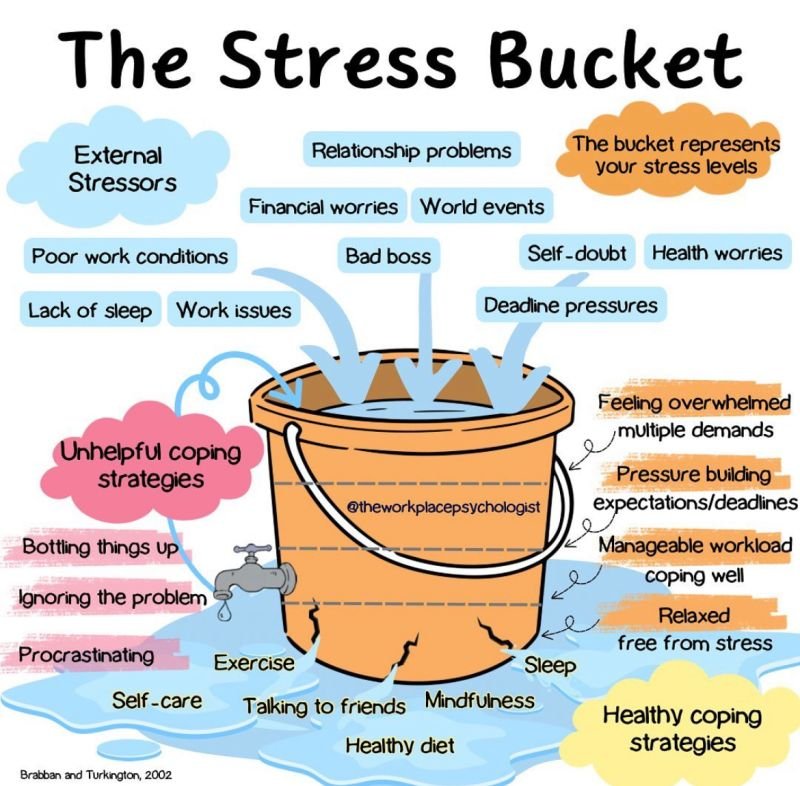You’re too stressed. Here’s why.
In our world today, we are all swimming through a pool of stressors. The stress is breaking down our bodies. When we were younger, we had enough reserves stored up to be able to counterbalance the stresses. As we age, our bodies need our help to proactively rebuild, replenish, and rebalance. Without intentional daily practices to revitalize and restore, the stresses overpower our detoxification systems, and we end up feeling drained, tired, unmotivated, and knowing that we need to turn things around, but not knowing where to start.
When experiencing stress, your body is in a catabolic state, breaking down at a faster rate than it can rebuild and therefore is aging rapidly due to chronic stress, every kind of stress.
Some signs that you're too stressed may include noticeable low energy, hormone issues including abnormal thyroid, fatigue, digestive issues, bloating, hives, stubborn belly fat, increased anxiety, irritability, low libido, brain fog, headaches, or general aches and pains.
There are at least four categories of stressors, listed below, that signal the brain to release adrenaline-epinephrine via the sympathetic nervous system of the autonomic nervous system, meaning this happens automatically. The sympathetic nervous system is what triggers the fight, flight, or freeze stress response. When you're in fight or flight mode, your body redirects resources - blood, oxygen, energy, etc. - away from non-essential functions such as brain and digestion, so it can keep you alive. It's a protective response. In our modern world, however, almost none of our stress is coming from the life or death situations that our body evolved to address. It's coming from things like traffic on the commute to work, a cranky email, or some of the examples listed below.
Mental-Emotional Stress - excitement, worry, anxiety, grief, depression, financial, job-related, overwork, trauma and abuse, relationship stress
Physical Stress - fractures, muscle injuries, nerves, compression, over-exercise, sleep depletion, chronic illness, dieting, structural stress, over-exercising or under-exercising
Chemical-Biochemical Stress - drugs, alcohol, parasites, bacteria, fungi, viruses, pesticides, herbicides, chemicals, toxic metals, wrong foods, blood sugar problems, tobacco, food additives, food allergies, metals in teeth
Existential or Spiritual Stress - lack of purpose in life, hopelessness, despair
Now that you know why your are so stressed, let's look at the Stress Bucket Analogy, for some insight on what you can do about it. Here's how the analogy works.
The Bucket: Imagine a bucket that represents your capacity to handle stress. Everyone's bucket is a different size, influenced by factors like genetics, personality, life experiences, and current well-being.
Stressors as Water: Various life events and daily challenges, both big and small, act like water filling up your bucket. These can include work pressure, financial concerns, relationship issues, health problems, and everyday hassles.
The Overflow: When the amount of water (stress) in the bucket exceeds its capacity, it overflows. This signifies feeling overwhelmed, anxious, fatigued, irritable, and potentially leading to burnout or other mental and physical health issues.
The Tap as Stress Release: The bucket has a tap at the bottom, which represents your replenishing strategies. Healthy rebalancing daily practices are like opening the tap, allowing stress to drain out and preventing the bucket from overflowing. Examples of healthy rebuilding activities include:
Exercise
Mindfulness and meditation
Spending time in nature
Connecting with others and seeking support
Engaging in hobbies and activities you enjoy
Getting enough sleep
Nourishing food and hydration
Unhealthy "Taps": Some releases might offer temporary relief but ultimately add more stress to the bucket. These are like "false taps" or leaky pipes that recirculate or even add more water back in. Examples include:
Excessive use of alcohol or drugs
Over or undereating
Avoidance and isolation
How to use the analogy
Identify your stressors: Take stock of the things in your life that contribute to your stress bucket filling up.
Recognize your stress management strategies: Think about how you typically manage stress. Are your coping mechanisms healthy and effective at draining the bucket, or are some of them adding to the problem?
Actively manage your stress: Develop and prioritize healthy daily strategies to consistently keep your bucket from overflowing and to promote overall well-being.
Seek support when needed.
Ultimately, you're the hero of your own journey. If you'd like to work with me to design and implement your own personalized stress rebalancing plan, email me at marie@marieruzek.com

